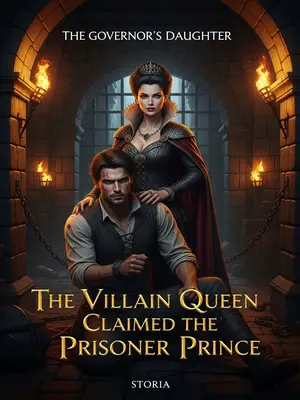Chapter 6: Sabotage and Sacrifice
Dean’s ankle was swelling. He lay on the couch, whining. Nobody cared.
“All done, does it still hurt?” Nora asked softly.
I shook my head. If she hadn’t said I was hurt, I wouldn’t have noticed.
I pulled my hand away, but spotted blood on Nora’s sleeve—a thumb-length scratch, bleeding, staining her shirt. Her fingers were red and swollen from frostbite, because I’d made her carry everything in the cold.
Guilt pricked me, but remembering my role, I snapped, “You’re bleeding. Don’t get it on my clothes.”
“Don’t worry, I’m careful. Didn’t get anything on you,” she said gently.
“She’s worried about me.”
I am worried about her.
“Hey! Does anyone care about me?” Dean yelled.
Nora glanced at him, eyeing his face and swollen ankle, and said dryly, “It’s not that bad. Worst case, you lose a foot.”
Dean: ?
I tried not to laugh, then forced myself to keep the plot moving. “Didn’t you study first aid, Nora? Go help my brother.”
Nora nodded.
“Delaney asked me, so I’ll go.”
Nora checked Dean’s ankle. She got two ice packs from the barista and pressed them on his ankle—no gentleness at all. Dean howled in pain.
I nodded in satisfaction, then snuck out to give them some alone time.
—
Bored, I wandered the shop. Passing a half-open door, I caught sight of Carter inside, meeting with a few men around a space heater.
Why was Carter back?
I remembered that in the book, Carter returned to town for the fair, right as news broke of Fleming’s defeat.
I hid and eavesdropped.
Carter was plotting with his political allies. I caught bits and pieces—then I heard my name.
“Time to use Delaney.”
“Your old flame? Weren’t you going to use her against the governor’s son? Isn’t it too soon?”
“I can’t wait. She’s been too much lately.”
“She’s beneath you.”
“At the fair, I’ll take her out. You leak the news, the governor’s son will move. I’ll play the victim, then take him out.”
So cold-blooded.
“What about Fleming?”
“Already taken care of. His top man finished him off on the battlefield. Died shouting about reclaiming the North. Pathetic.”
“The body?”
“Dumped in the wild, let the wolves have him. Yesterday, someone checked—picked clean, just bones left.”
“Nice work.”
I was stunned, picturing Colonel Fleming at the gala, upright and brave, hair gray but eyes clear.
He could’ve retired in peace, but still went to war—and ended up like that.
“Before he died, Fleming wrote a letter to his wife, but it was intercepted.”
“What did it say?”
“Nothing dangerous. Just told her to take care of herself, said she was as good as any man.”
“And the letter?”
“Burned it.”
I stopped listening. My stomach dropped.
I’d always treated these characters as paper dolls, not real people. But now, I felt a pang of real grief.
I knew what that letter meant. Fleming knew he might not come home, so he wrote to Nora before battle. He didn’t want to drag her into politics, so he just told her to look after herself.
In his eyes, his daughter was as good as any son.
But—Nora would never see that letter, or her father again.













